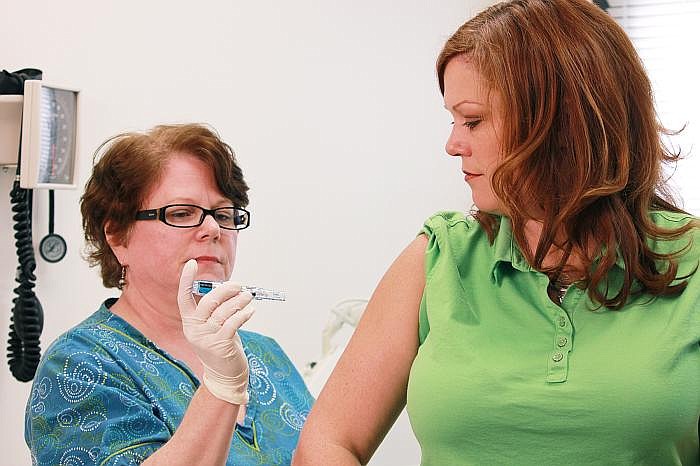- April 19, 2024
-
-
Loading

Loading

Every year the flu virus changes, producing different strains and forcing our bodies to adapt in order to fight the virus. For this reason, the Centers for Disease Control and Prevention recommends that all individuals 6 months and older get the flu vaccine every year to lower their chances of infection.
While most should get vaccinated, those with generally weaker immune systems are especially at risk – usually small children and seniors. Recent studies show that as many as 85 percent of seasonal flu-related deaths are in people 65 years of age and older. And up to 70 percent of those who were hospitalized for flu-related symptoms were over 65. If you fall into this age range, it’s important to know how to protect yourself from the flu.
How to prevent the flu
The best possible method of preventing the flu is to receive a flu vaccine. For those at higher risk, there are two options for vaccination:
• The high dose vaccine is designed specifically for people 65 and older and contains four times the amount of antigen as the regular flu shot.
• The adjuvanted flu vaccine is designed to help create a stronger immune response to vaccination. One study found this type of vaccine was 63 percent more effective than regular-dose unadjuvanted flu shots in persons over the age of 65.
In addition to these two flu vaccines, vaccines also are available to help prevent pneumonia. If you’re a healthy adult over age 65, the CDC suggests you get both vaccines. The timing and sequence will vary depending on which vaccine you’ve had previously.
Good health habits also can go a long way in preventing the flu, such as washing your hands often to protect yourself from germs. If soap and water are not available, use an alcohol-based hand rub. Clean and disinfect frequently touched surfaces at home and work, especially if someone in the area is ill.
Be sure to avoid close contact with anyone who is sick, and avoid touching your eyes, nose or mouth. Germs are often spread when a person touches something that is contaminated and then touches his or her eyes, nose or mouth.
Signs you have the flu
When you get the flu, there are a variety of symptoms that you may suffer from, all of which are very uncomfortable. These symptoms include:
• Body aches
• Headache
• Tiredness
• Fever
• Cough
• Sore throat
• Runny or stuffy nose
• Diarrhea and/or vomiting
If you’re feeling as though you could be suffering from the flu, it is important to seek medical attention as soon as possible to prevent the virus from worsening or developing additional complications. Flu antiviral drugs can be used to treat the flu, but a doctor needs to prescribe them as soon as symptoms appear.
Not sure where to go? GuideWell Emergency Doctors can help. With three convenient, top-rated locations in the greater Orlando area, GuideWell Emergency Doctors offers affordable walk-in and urgent care treatment by board certified emergency medicine doctors. Visit our website at GuideWellEmergency.com to learn more or find your nearest location today.
Watching for flu complications
Those over the age of 65 with the flu are at a greater risk for developing both minor and major complications, some of which may require hospitalization. Minor complications include dehydration, ear infection and sinus infections. Major complications include bronchitis, pneumonia or even death.
Pneumonia is one of the most serious flu-related complications that occurs in the elderly. Due to the natural weakening of the immune system as we age, pneumonia can evolve very quickly, taking a severe toll on the body and further inhibiting our ability to fight off illness.
Similarly, the flu can worsen preexisting medical conditions such as congestive heart failure, asthma or diabetes. If you’re an adult 65 or older and have chest pain or a cold that lasts for more than two weeks, you should seek medical help as soon as possible.
Dr. Christopher Hamann is board certified with the American Board of Emergency Medicine and serves as the medical director for GuideWell Emergency Doctors. Dr. Hamann leads a team of experienced emergency doctors, nurses and technicians who staff GuideWell Emergency Doctors seven days a week. They provide high-quality, cost-effective care for the unscheduled medical needs of patients of all ages. With on-site diagnostic services that include CT scan, X-ray, ultrasound and lab work, GuideWell Emergency Doctors is prepared to treat major medical conditions as well as minor urgent care needs. The facilities are located near Trader Joe’s in Winter Park, across from West Oaks Mall in Ocoee and in Orlando at 1706 N. Semoran Blvd., approximately one mile north of Colonial Drive. Learn more about GuideWell Emergency Doctors at GuideWellEmergency.com